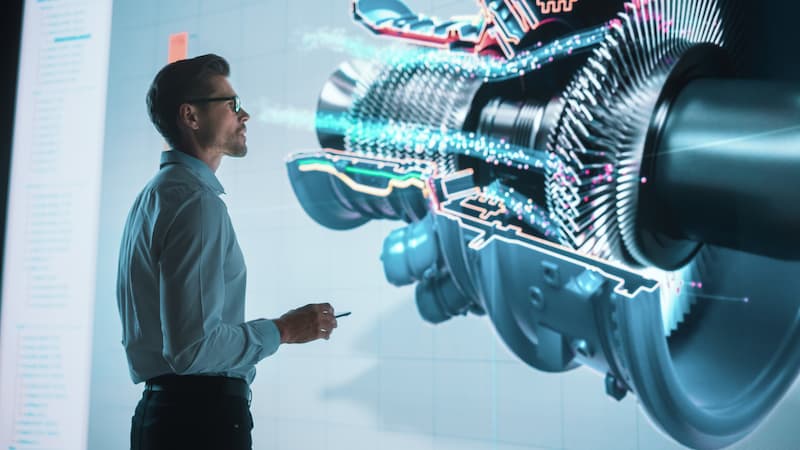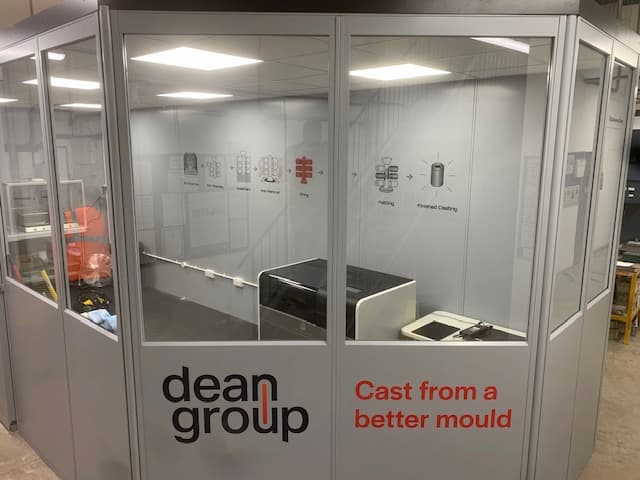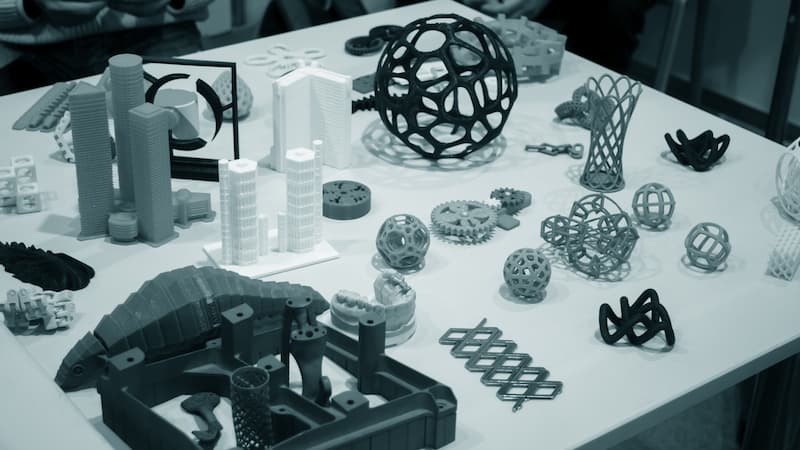Digital Skills Re-Inventing UK Manufacturing
The manufacturing industry has played a significant role in the UK's economy for centuries. It has been a source of employment and has contributed to the country's overall growth and development. However, the industry has faced challenges recently, including adapting to changing technologies and market demands.
Digital skills have become increasingly important in improving the future of manufacturing. With the rise of digital technologies, companies that have embraced digitalisation have already seen significant improvements in their operations, efficiency, and bottom line. Read on to discover how Dean Group and the industry adapt to nationwide digital manufacturing processes.

Digital Skills Creating 3D Printed Prototypes
We understand the importance of digital skills for manufacturing as they enabled us to invest in 3D printing prototypes for our manufacturing operations.
Our rapid prototyping service enables designers to obtain physical, functional versions of their vision and develop and refine them accurately. Our advanced 3D printing room allows us to take a client's concept from prototyping to the final metal cast product all under one roof. Our digital simulations ensure that the resulting castings are reliable and long-lasting, crucial for detailed castings such as the parts we cast for the Cloud Cities of Barcelona.
Our expert engineers constantly update their knowledge of the digital skills required for the process, including 3D CAD modelling, simulation testing, and tooling design viability, to ensure the production of successful prototypes.
Even if everything is as expected from the design the first time, 3D wax printing prototyping enables designers to experiment with many different design options in a much shorter time to explore potential ideas before committing to a final design. While prototyping is possible with only analogue tools, it is far less efficient than this digitally supported manufacturing prototyping process.

Industry-Wide Improved Sustainability
The manufacturing industry has traditionally been associated with high levels of waste, pollution, and carbon emissions. Fortunately, current efforts inspired by the nation’s Net Zero 2050 strategy have begun to change that association.
Digital technologies are helping to further reduce the industry's carbon footprint by enabling companies to adopt sustainable practices. For example, 3D printing investment casting reduces waste and carbon emissions by allowing manufacturers to embrace efficient material usage and significantly reduce wasted material through incorrect designs. At Dean Group, we take this thinking further by recycling almost all of the wax used so it can be used again later.
Many companies have already implemented sustainable practices through the use of digital technologies. For instance, Tesla has implemented advanced digital sustainable practices throughout its production process, from using renewable energy sources to power its factories to implementing digital technologies to optimise its supply chain. *

Digital Skills Changing Processes
Digital skills are playing an increasingly important role in improving manufacturing processes. Apart from the previously mentioned 3D printed prototypes, automation, in particular, is revolutionising the manufacturing industry by improving efficiency and reducing costs. Automation involves the use of machines and digital technologies to perform tasks that were previously done manually.
This technology has enabled manufacturers to produce results faster and more accurately, with fewer errors and less waste. As a result, companies that have implemented automation have been able to reduce costs and increase productivity.
Facility maintenance has also been significantly improved with digital processes, particularly through predictive maintenance. This approach involves using digital technologies, such as sensors and machine learning algorithms, to monitor equipment and predict when maintenance is required. Manufacturers can reduce downtime and increase productivity by detecting changes in equipment performance and identifying potential issues before they become major problems. Predictive maintenance is a cost-effective approach that enables manufacturers to optimise maintenance schedules and reduce the risk of unexpected equipment failures.

Upskilling Staff to Use Digital Skills
However, to fully realise the benefits of automation, it is crucial to upskill the workforce to keep up with technological advancements. This means investing in training programs to help existing workers develop the digital skills needed to operate and maintain automated systems. It also means supporting the education of a new generation of engineers learning these new digital processes early. By doing this, manufacturers ensure their workforce is equipped to handle the latest technologies and remain competitive.

Digital Skills Safeguarding Supply Chains
Digital skills and technologies such as artificial intelligence and machine learning help optimise production processes, reducing energy consumption and waste.
Strong supply chains are essential to the success of the manufacturing industry. A well-designed supply chain ensures that manufacturers have access to the materials, components, and services they need to produce their goods efficiently and cost-effectively.
Digital technologies are increasingly important in strengthening supply chains by improving visibility, reducing lead times, and increasing agility. For example, companies use digital technologies like blockchain, artificial intelligence, and the Internet of Things (IoT) to improve supply chain management. These technologies enable companies to track products and materials in real-time, optimise inventory levels, and improve communication with suppliers and buyers within B2B (business-to-business) operations.

Dean Group: Leading UK Investment Casting Foundry
At Dean Group, we are not only a family-run UK metal foundry with over 50 years of experience but also pioneers in the future of metal casting. Our investment casting process is one of the most advanced in the industry, utilising cutting-edge technology and innovative methods to produce high-quality results for both premium and commercial-grade work.
We take pride in staying ahead of the curve by embracing new technologies and techniques that improve the efficiency and quality of our casting services. Our case studies demonstrate our commitment to providing reliable and effective services that meet the unique needs of our clients.
Contact us to learn more about how our advanced prototyping and casting services, including our 3D printing capabilities, will benefit your applications.
* This information was sourced from the Tesla Impact Report

Registered in England VAT No: 146307478 Company Registration No: 1062820




